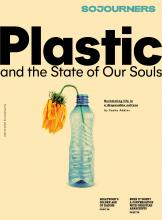DONALD TRUMP'S VICTORY came mostly from non-college-educated whites in the Appalachian parts of Pennsylvania and Ohio and the deindustrialized Rust Belt regions of Michigan and Wisconsin, including many areas that had voted twice for Barack Obama. As this realization dawned, many affluent, educated, bicoastal liberals began to ask: What’s the matter with our white working class? J.D. Vance, who wrote Hillbilly Elegy: A Memoir of a Family and a Culture in Crisis (2016) and grew up in the Rust Belt, in a family still moored to Appalachian Kentucky, turned out to be just the guy to tell the neoliberal elite what it wanted to hear.
Sure America’s industrial economy went to hell in the past four decades, he acknowledged. But Vance said his people haven’t pulled out of that slump because of what he called “hillbilly culture”—which, in his telling, seems to consist mostly of drug and alcohol abuse, hair-trigger violence, and a debilitating tendency to blame others for one’s problems (i.e. the government, coal or steel companies, Obama, etc.). This, of course, is in stark contrast to what Vance did with his own impoverished circumstances: joined the Marines, went to college and law school, and became a Silicon Valley venture capitalist.
Now, Trump is campaigning again, and Vance is back, too, with the pending release of a Hillbilly Elegy movie directed by Ron Howard. In the interim, a steady stream of other books have appeared, offering more systematic reflections on how some in the white working class became angry enough to give us Trump.
White Working Class: Overcoming Class Cluelessness in America , by Joan C. Williams (2017), was one of the first and, given its limitations, best of the books. Williams confesses to her membership in what she calls the Professional-Managerial Elite (PME). But she’s married to a man from working-class origins, a “class migrant,” she calls him, and that’s helped her see the “cluelessness” of her peers. Williams’ message is simple: “When you leave the two-thirds of Americans without college degrees out of your vision of the good life, they notice.”
Read the Full Article

